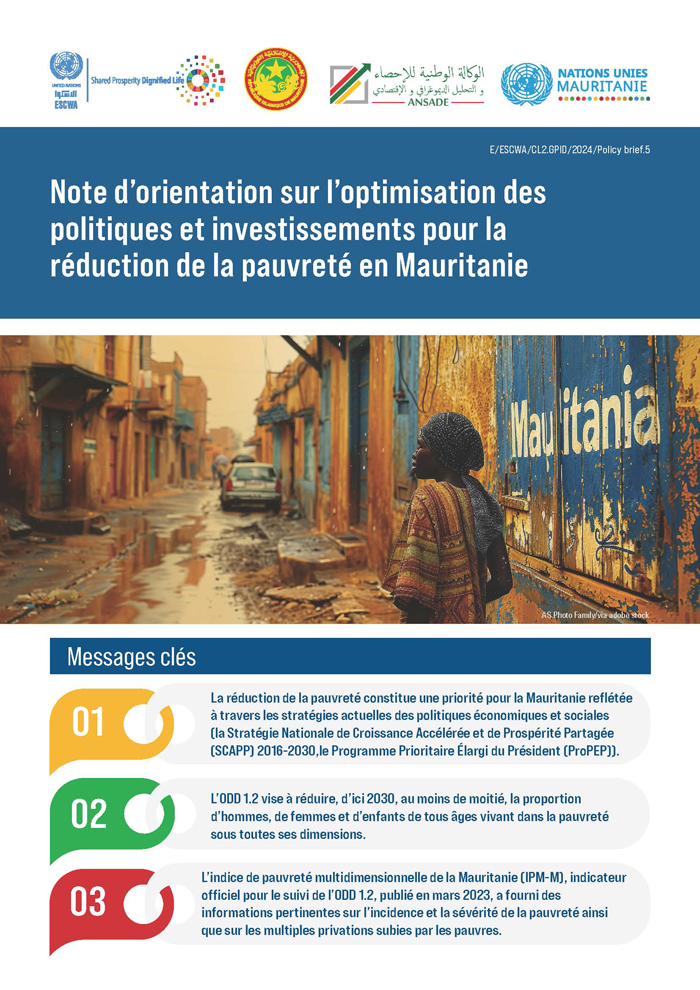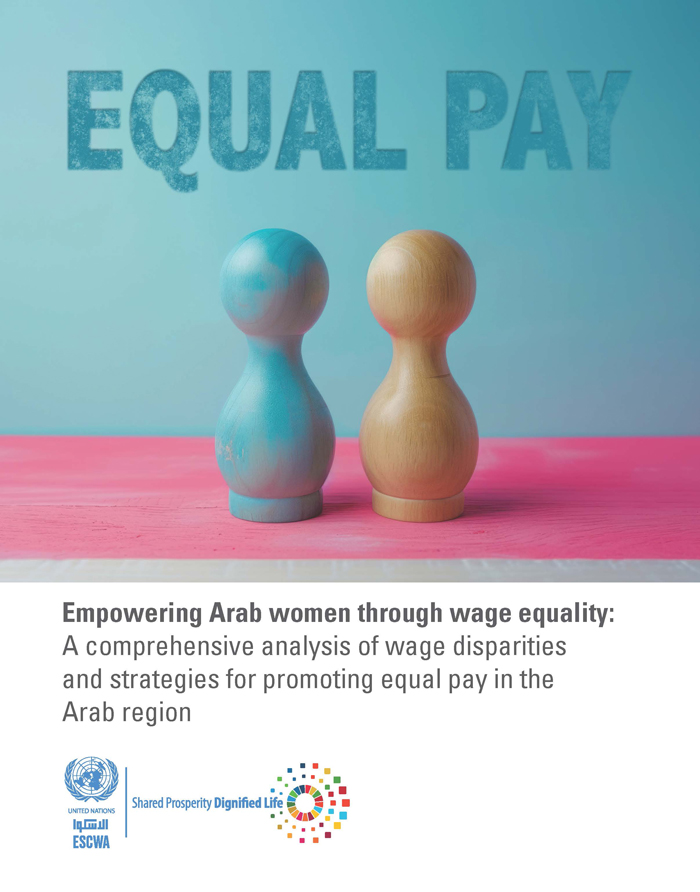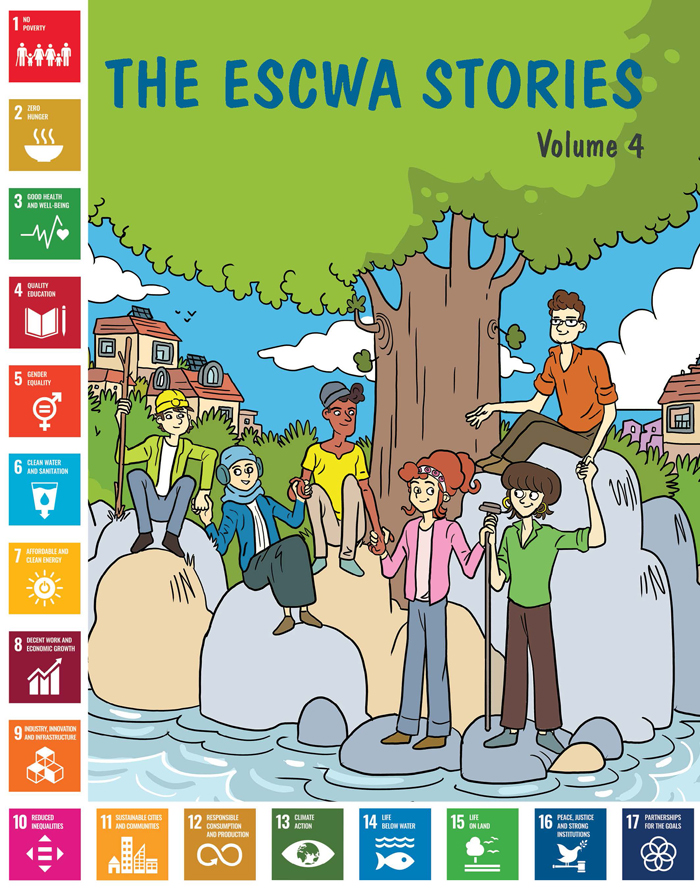
ESCWA Publication: E/ESCWA/CL2.GPID/2024/Policy brief.5
Country: Islamic Republic of Mauritania
Publication Type: Policy briefs
Cluster: Gender Justice, Population and Inclusive Development
Focus Area: Climate change, Governance & enabling environment, Inclusive development, Future of employment, Natural resource sustainability, Population dynamics & migration
Initiatives: Arab Initiative for Mobilizing Climate Finance for Water, Job creation, Development challenges, Water Action Decade, Reducing inequalities
SDGs: Goal 1: No Poverty, Goal 4: Quality Education, Goal 6: Clean Water and Sanitation, Goal 8: Decent Work and Economic Growth, Goal 11: Sustainable Cities and Communities, Goal 13: Climate Action
Keywords: Decentralization in government, Drinking water, Education, Employment creation, Housing, Mauritania, National health insurance, Policy making, Poverty mitigation, Sanitation services, Sustainable development, Technical cooperation
Guidance note on optimizing policies and investments for poverty reduction in Mauritania (Note d’orientation sur l’optimisation des politiques et investissements pour la réduction de la pauvreté en Mauritanie)
December 2024
The national multidimensional poverty index (MPI) of Mauritania is a powerful tool to guide social policies in the country and to identify targeted policies that address several Sustainable Development Goals (SDGs), in particular SDG 1.2.2.
In 2019, more than half of the Mauritanian population was multidimensionally poor, with the MPI-poor deprived in more than 50 per cent of the 19 MPI indicators. Given this background and in support of the Ministry of Economy and Finance in Mauritania, ESCWA and the National Agency for Statistics, Demographic and Economic Analysis (ANSADE) conducted an assessment of actions needed to reduce the MPI by 30 per cent. A micro-simulation model was developed and initial results were presented in this policy brief at the national level and for three subregions (Wilayas), namely the Wilaya of Guidimagha, the Wilaya of Hodh Charghy and the Wilaya of Nouakchott. Depending on the Wilaya, reaching the 30 per cent reduction target would require essential improvements in health insurance coverage, youth employment, education and access to basic sanitation, among others.
This policy brief is available in French only.
Related content
Climate change
, Governance & enabling environment
, Inclusive development
, Future of employment
, Natural resource sustainability
, Population dynamics & migration
,
The national multidimensional poverty index (MPI) of Mauritania is a powerful tool to guide social policies in the country and to identify targeted policies that address several Sustainable Development Goals (SDGs), in particular SDG 1.2.2.
In 2019, more than half of the Mauritanian population was multidimensionally poor, with the MPI-poor deprived in more than 50 per cent of the 19 MPI indicators. Given this background and in support of the Ministry of Economy and Finance in Mauritania, ESCWA and the National Agency for Statistics, Demographic and Economic Analysis (ANSADE) conducted an assessment of actions needed to reduce the MPI by 30 per cent. A micro-simulation model was developed and initial results were presented in this policy brief at the national level and for three subregions (Wilayas), namely the Wilaya of Guidimagha, the Wilaya of Hodh Charghy and the Wilaya of Nouakchott. Depending on the Wilaya, reaching the 30 per cent reduction target would require essential improvements in health insurance coverage, youth employment, education and access to basic sanitation, among others.
This policy brief is available in French only.



